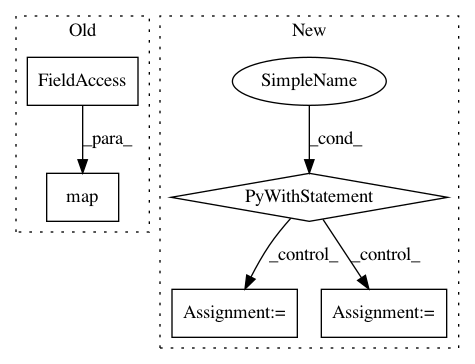45b6de2c579c4dfcd25345f1124ce9d1638bfd32,pynndescent/threaded.py,,nn_descent,#Any#Any#Any#Any#Any#Any#Any#Any#Any#Any#Any#Any#Any#Any#Any#,548
Before Change
heap_updates, heap_update_counts, offsets, chunk_size, n_vertices, index
)
for _ in executor.map(shuffle, range(n_tasks)) :
pass
// then run reduce functionsAfter Change
if rng_state is None:
rng_state = new_rng_state()
with Parallel(prefer="threads", n_jobs=n_jobs) as parallel:
n_vertices = data.shape[0]
n_tasks = int(math.ceil(float(n_vertices) / chunk_size))
current_graph = init_current_graph(
data,
dist,
dist_args,
n_neighbors,
chunk_size,
rng_state,
parallel,
seed_per_row=seed_per_row,
)
if rp_tree_init:
init_rp_tree(
data, dist, dist_args, current_graph, leaf_array, chunk_size, parallel
)
// store the updates in an array
// note that the factor here is `n_neighbors * n_neighbors`, not `max_candidates * max_candidates`
// since no more than `n_neighbors` candidates are added for each row
max_heap_update_count = chunk_size * n_neighbors * n_neighbors * 4
heap_updates = np.zeros((n_tasks, max_heap_update_count, 4))
heap_update_counts = np.zeros((n_tasks,), dtype=np.int64)
nn_descent_map_jit = make_nn_descent_map_jit(dist, dist_args)
for n in range(n_iters):
if verbose:
print("\t", n, " / ", n_iters)
(new_candidate_neighbors, old_candidate_neighbors) = new_build_candidates(
current_graph,
n_vertices,
n_neighbors,
max_candidates,
chunk_size,
rng_state,
rho,
parallel,
seed_per_row=seed_per_row,
)
def nn_descent_map(index):
rows = chunk_rows(chunk_size, index, n_vertices)
return (
index,
nn_descent_map_jit(
rows,
max_candidates,
data,
new_candidate_neighbors,
old_candidate_neighbors,
heap_updates[index],
offset=0,
),
)
def nn_decent_reduce(index):
return nn_decent_reduce_jit(
n_tasks, current_graph, heap_updates, offsets, index
)
// run map functions
for index, count in parallel(parallel_calls(nn_descent_map, n_tasks)):
heap_update_counts[index] = count
// sort and chunk heap updates so they can be applied in the reduce
max_count = heap_update_counts.max()
offsets = np.zeros((n_tasks, max_count), dtype=np.int64)
def shuffle(index):
return shuffle_jit(
heap_updates,
heap_update_counts,
offsets,
chunk_size,
n_vertices,
index,
)
parallel(parallel_calls(shuffle, n_tasks))
// then run reduce functions
c = 0
for c_part in parallel(parallel_calls(nn_decent_reduce, n_tasks)):
c += c_part
if c <= delta * n_neighbors * data.shape[0]:
break
def deheap_sort_map(index):
rows = chunk_rows(chunk_size, index, n_vertices)
return index, deheap_sort_map_jit(rows, current_graph)
parallel(parallel_calls(deheap_sort_map, n_tasks))
return current_graph[0].astype(np.int64), current_graph[1]
In pattern: SUPERPATTERN
Frequency: 3
Non-data size: 5
Instances Project Name: lmcinnes/pynndescent
Commit Name: 45b6de2c579c4dfcd25345f1124ce9d1638bfd32
Time: 2019-05-17
Author: tom.e.white@gmail.com
File Name: pynndescent/threaded.py
Class Name:
Method Name: nn_descent
Project Name: GPflow/GPflow
Commit Name: 5e599fb01df65d156a40f7a138ab6627a06a50db
Time: 2020-05-07
Author: 6815729+condnsdmatters@users.noreply.github.com
File Name: gpflow/optimizers/natgrad.py
Class Name: NaturalGradient
Method Name: _natgrad_steps
Project Name: GPflow/GPflow
Commit Name: b41d4f38436e4a090c940dbd3bc7e2afd39a283e
Time: 2020-04-23
Author: st--@users.noreply.github.com
File Name: gpflow/optimizers/natgrad.py
Class Name: NaturalGradient
Method Name: _natgrad_steps
